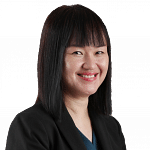SINGAPORE – Trust in the Government has increased slightly in Singapore, and it remains the most trusted institution here, according to an annual survey.
The 2024 Edelman Trust Barometer, released on March 12 by global communications firm Edelman, showed an increase in trust in Singapore by 1 percentage point from 2023 across each of four institutions: government (77 per cent), non-governmental organisations or NGOs (66 per cent), business (63 per cent) and media (60 per cent).
In contrast, the global average showed that business is the only trusted institution (63 per cent).
Across the world, respondents are neutral about NGOs (59 per cent), government (51 per cent) and media (50 per cent).
A response of less than 50 per cent indicates distrust, while 60 per cent and above indicates trust.
Despite the increase in trust in Singapore, 93 per cent of employed respondents from the country are worried about job loss – an increase of 3 percentage points from 2023.
There is also a 7 percentage point rise in Singapore’s general population (80 per cent) who worry about hackers, and a surge of 5 percentage points of those who are concerned about climate change (75 per cent).
The latest edition of the survey, which started in 2000, focuses on society’s trust in innovation at a time of rapid transformation.
Innovation has become a new risk factor for trust. In Singapore, 28 per cent of respondents say innovation is poorly managed – a sentiment shared across different income levels, genders and age groups. This is 4 percentage points more than those who say innovation is well managed.
Those who believe innovation is poorly managed are more likely to feel alienated and left behind.
More respondents in nearly all countries polled say innovation is poorly managed rather than well managed.
Globally, 73 per cent of respondents believe that technology is changing too quickly. Governments have the best opportunity to reverse this trend as government is the most trusted institution (76 per cent) to introduce innovations into society by ensuring they are safe, understood by the public, beneficial and accessible.
It is followed in this regard by business and NGOs (62 per cent each), and media (56 per cent).
To have trust in innovation, respondents in Singapore expect the four institutions of government, business, NGOs and media to protect core values and be transparent about the benefits and risks of new technologies.
Over the last decade, the survey has seen a 13-point increase in people in Singapore – from 61 per cent to 74 per cent – saying that businesses partnering with government to develop and implement technology-led innovations would increase their trust in business.
Nearly two-thirds (63 per cent) expect chief executive officers to manage changes occurring in society, not just those occurring in their businesses, and employees say it is important for their CEO to speak publicly about the ethical use of technology (80 per cent), automation’s impact on jobs (80 per cent) and job skills of the future (79 per cent).
“The high and consistent trust across all four institutions of government, business, NGOs and media bodes well for Singapore, and is a reminder that the private and public sectors working together will deliver the greatest impact,” said Ms Julia Wei, CEO of Edelman Singapore.
She added: “This year’s Trust Barometer also reveals that people are more likely to embrace innovation if they have control over how these innovations affect their lives and have confidence that each innovation will lead to a better future. For leaders driving these innovations, communicating this impact in a clear and succinct way will go a long way in ensuring the effective roll-out and adoption of new technologies.”
The survey sampled more than 32,000 respondents across 28 markets, with an average of 1,150 respondents per market fielded from Nov 3 to 22 in 2023.
The 2024 Edelman Trust Barometer for Asia-Pacific (Apac) revealed that people in the region are more trusting of key institutions and technology compared with the rest of the world, and are more likely to embrace emerging technologies such as artificial intelligence.
This, coupled with greater faith in governments to lead a partnership with science and businesses, could result in a regional technological advantage if innovation is well managed, the report suggested.
“Most Asian societies enjoy an innovation edge when it comes to tapping key new technologies because of the higher levels of trust in government and business among their people,” said Mr Warren Fernandez, CEO of Edelman Apac.
“To harness this advantage, our leaders must ensure that the already advanced roll-out of technologies, such as artificial intelligence and green energy, is seen to be inclusive and working in the interests of the broad sweep of society.”
Based on the Trust Index – the average per cent of trust in NGOs, business, government and media – developing countries lead on trust. All four South-east Asian countries in the 2024 survey are among the top 10 most trusting globally: Indonesia (73 points, No. 4), Thailand (70 points, No. 6), Malaysia (68 points, No. 7) and Singapore (67 points, No. 8).
Major markets from the region lead on trust, including China (79, No. 1) and India (76, No. 2).
The report, however, reveals a worry in Singapore that societal leaders, including journalists (55 per cent), business leaders (55 per cent) and government leaders (46 per cent), are purposely trying to mislead with false or gross exaggerations.
This finding is global: A majority say they are worried that government leaders are misleading them in 22 of 28 countries, and that business leaders and journalists are doing the same in 25 of 28 countries.
Globally, government is now distrusted in 17 of the 28 countries surveyed, including the United States (40 per cent), Germany (42 per cent) and Britain (30 per cent).
Media remains the least trusted institution globally (50 per cent) and is distrusted in 15 of 28 countries, including the US (39 per cent), Japan (33 per cent) and Britain (31 per cent).
In Singapore, trust in traditional media for general news and information rose by 3 percentage points to 67 per cent.


